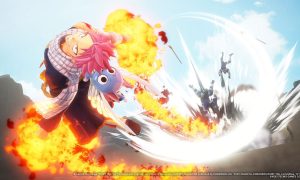 Even for fans of the Legend of Zelda series, it would have been forgivable to miss Oracle of Ages and Oracle of Seasons. After all, the games are over a decade old now – so there’s a good chance that many people who love following Link on his adventures simply came into gaming too late to pick up these titles. That’s unfortunate, since – despite being developed by Capcom subsidiary Flagship rather than Nintendo directly – these are a couple of the most interesting games in the Legend of Zelda series.
Even for fans of the Legend of Zelda series, it would have been forgivable to miss Oracle of Ages and Oracle of Seasons. After all, the games are over a decade old now – so there’s a good chance that many people who love following Link on his adventures simply came into gaming too late to pick up these titles. That’s unfortunate, since – despite being developed by Capcom subsidiary Flagship rather than Nintendo directly – these are a couple of the most interesting games in the Legend of Zelda series.
The most daring (for the time) aspect was the inclusion of a password system, where finishing one game gave you a code that you could use when starting the other game – unlocking additional content that would ‘link’ (ha ha) both of the titles together in a way that was extremely rare at the time. These games are now available from the Nintendo eShop for $4.99 each, for a limited time – and I’ve checked out both to give you an idea of what you’ve missed if you haven’t given these games a go before.
[singlepic id=13760 w=320 h=240 float=right] The history behind the Oracle games is interesting as well. Apparently, Flagship originally wanted to make this into a trilogy – one for each piece of the Triforce – but Nintendo ended up rejecting that aggressive idea. It’s easy to see why if you think about it: with two games that have this sort of interaction, you just have to account for someone starting with game A and finishing game B, or starting game B and finishing game A. But if you have a third game? Well, now you have to cope with people who start with game C, move onto game A, then finish with game B. Or will they go CBA instead? Or ABC? Or ACB? Or BCA? Or BAC? Granted, there are ways to simplify this… but if it’s simplified too much, then the whole incentive to get people to play all of these games together starts to go out the window. In the end, the game’s theme was changed to accommodate a two-title system, and the rest is history.
[singlepic id=13761 w=320 h=240 float=left]The games are also very distinct from each other, complete with their own characters, plots, and even overall gameplay style – Oracle of Seasons has more of an action and combat oriented emphasis, while Ages focuses more on puzzle-solving. This isn’t like Pokemon Color-1 and Color-2 where both titles are pretty much the same game, with the differences being more or less marginal. Both of the games really feel as if they’ve stood the test of time, at least for people who are open to the old-school style of Legend of Zelda games – graphically they’re dated, but considering these were games originally released on a portable platform over a decade ago, they’ve actually held up pretty well in every way. They are certainly, at their core, Legend of Zelda titles: you explore a nice little top-down-view world, slash with your sword, pick up and upgrade new pieces of equipment, solve puzzles, and generally do what you can to try and save the world for an impending threat.
The short of it is, these are a couple of gaming gems that are finally available on a modern system, thanks to the magic of the 3DS virtual console. At five bucks a pop – for a limited time – they’re worth checking out. So if you’re a Legend of Zelda fan who hasn’t experienced these slightly more obscure entries into the series, be sure to hit the Nintendo eShop and check them out.
Victor Grunn has been a gamer since the days of single-button joysticks and the Atari 800XL. When not lamenting the loss of the Ultima series or setting people on fire in Team Fortress 2, he's an aspiring indie game developer and freelance writer.

See below for our list of partners and affiliates:























